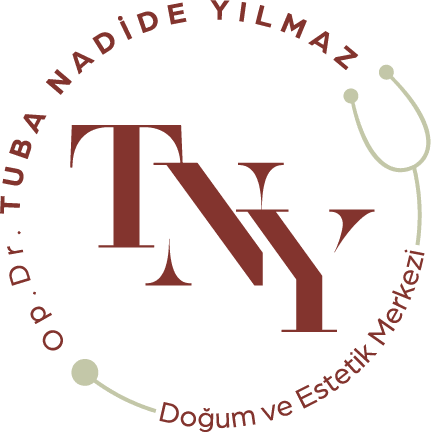7 Important Points for a Healthy Pregnancy
Pregnancy is one of the most important and sensitive periods in a woman's life. During this period, a balanced and adequate diet is of great importance for the health of both mother and baby. Nutrition during pregnancy includes not only adequate calorie intake, but also the intake of essential vitamins and minerals. In this article, the importance of healthy nutrition and multivitamin use during pregnancy, the necessary nutrients, the correct selection and use of multivitamins, side effects and things to consider will be discussed in detail.
Pregnancy and Nutrition Basics
Nutrition during pregnancy plays a critical role in the health of mother and baby. During this period, the expectant mother's body needs extra nutrients to meet her needs and those of her developing baby. Essential nutrients include proteins, carbohydrates, fats, vitamins and minerals. A balanced intake of these nutrients is vital for the healthy development of the baby.
Importance of Nutrition in Pregnancy
Pregnancy brings many changes, both physical and psychological. These changes also affect the mother's nutritional needs. For example, pregnancy hormones increase the need for certain vitamins and minerals. In addition, adequate intake of nutrients necessary for the growth and development of the baby is essential. Therefore, a balanced and varied diet during pregnancy is of great importance.
Vital Vitamins for Pregnancy
Vitamins that are particularly important during pregnancy include folic acid, iron, calcium, vitamin D and vitamin B12. These vitamins are essential for basic functions such as the baby's nervous system, bone development and blood production. Adequate vitamin intake during pregnancy is important for preventing congenital anomalies and supporting a healthy pregnancy.
Minerals and Their Importance in Pregnancy
The minerals needed during pregnancy are iron, calcium, iodine and zinc. Iron plays a vital role in oxygen transportation in the blood cells of the expectant mother and her baby. Calcium is essential for the baby's bone and tooth development. Iodine plays an important role in the regulation of thyroid function and brain development of the baby. Zinc is a critical mineral for cell growth and supporting the immune system.
The Role of Multivitamins in Pregnancy
During pregnancy, sometimes the vitamins and minerals taken through the diet may be insufficient. In this case, multivitamin supplements become important on the advice of a doctor. These supplements provide essential vitamins and minerals necessary for the healthy development of both mother and baby during pregnancy. Choosing and using the right multivitamin helps prevent nutritional deficiencies during pregnancy.
Healthy Eating Tips During Pregnancy
A healthy diet during pregnancy includes a balanced diet as well as adequate and regular food intake. Nutrition tips for expectant mothers include eating plenty of fresh fruits and vegetables, whole grains and adequate protein intake, and avoiding excess sugar and processed foods. Adequate water consumption is also very important during pregnancy.
Vitamin Deficiencies and Risks during Pregnancy
Some vitamin deficiencies during pregnancy can pose a risk to the health of both mother and baby. For example, folic acid deficiency can lead to congenital nervous system disorders. Iron deficiency can cause anemia. Therefore, regular health checks and, if necessary, vitamin supplements are important during pregnancy.
Multivitamin Use under Doctor's Supervision
The use of multivitamins during pregnancy should always be under the supervision of a health professional. The doctor will assess the health status and dietary habits of the expectant mother and recommend the necessary vitamin and mineral supplements. In this process, paying attention to the correct dosage and frequency of use minimizes side effects and possible risks.
Special Conditions and Multivitamins in Pregnancy
Special conditions, such as multiple pregnancies or chronic health conditions, can change nutritional needs during pregnancy. In these cases, nutrition plans and vitamin supplements should be customized according to individual needs. For example, vitamin and mineral needs may increase in multiple pregnancies.
Side effects of multivitamins and what to look out for
Like any supplement, multivitamins can have side effects. It is therefore important not to overdo it with multivitamins and to follow the doctor's advice. Possible side effects can include stomach upsets, constipation and allergic reactions. In case of any side effects, you should consult a doctor.
Natural Food Sources and Alternatives during Pregnancy
As an alternative to multivitamin supplements, it is also possible to turn to natural food sources rich in vitamins and minerals. In pregnancy, foods such as green leafy vegetables, fruits, whole grains, nuts and lean meat products provide the necessary vitamins and minerals.
Post Pregnancy and Multivitamins
The mother's nutrition is also important in the postpartum period. Especially during breastfeeding, adequate and balanced nutrition is necessary for the health of both mother and baby. During this period, multivitamin use may continue under the supervision of a doctor.
Conclusion and Recommendations
Pregnancy is a time when a balanced and adequate diet is important for the health of mother and baby. Multivitamins can help prevent nutritional deficiencies during pregnancy when used correctly. However, it is essential to use these supplements under the supervision of a doctor and in the correct dosage. Healthy eating habits during and after pregnancy are one of the cornerstones for the health of both mother and baby.
Frequently Asked Questions During Pregnancy
Which Vitamins Are More Important During Pregnancy?
Folic acid, iron, calcium, vitamin D and vitamin B12 are especially important during pregnancy. These vitamins are essential for the healthy development of the baby and can help prevent congenital anomalies.
Multivitamin Kullanımı Her Gebelikte Gerekli midir?
Multivitamin use is not mandatory for every pregnancy. However, in some cases, especially due to an unbalanced diet or certain health problems, multivitamin supplements may be necessary. It is important to consult with a health professional before making this decision.
How Should Nutrition Be During Pregnancy?
Nutrition during pregnancy should be balanced and varied. Eat plenty of fruit and vegetables, whole grains, adequate protein and healthy fats. It is also important to drink enough water and avoid overly processed foods.
What Should Be Considered When Using Multivitamins During Pregnancy?
When taking a multivitamin during pregnancy, it is important to follow the doctor's advice and not exceed the recommended doses. In addition, a doctor should be consulted in case of any side effects or discomfort.
Are Natural Food Sources Sufficient or Should Supplements Be Taken?
In most cases, a balanced and varied diet can provide all the necessary vitamins and minerals. However, in some cases (for example, if there are certain health conditions or nutritional deficiencies) multivitamin supplements may be required.
Should Multivitamin Use Continue After Pregnancy?
The use of multivitamins in the post-pregnancy period depends on personal health and the doctor's recommendations. Supplementation may continue, especially during breastfeeding, due to the increased need for certain vitamins and minerals.











